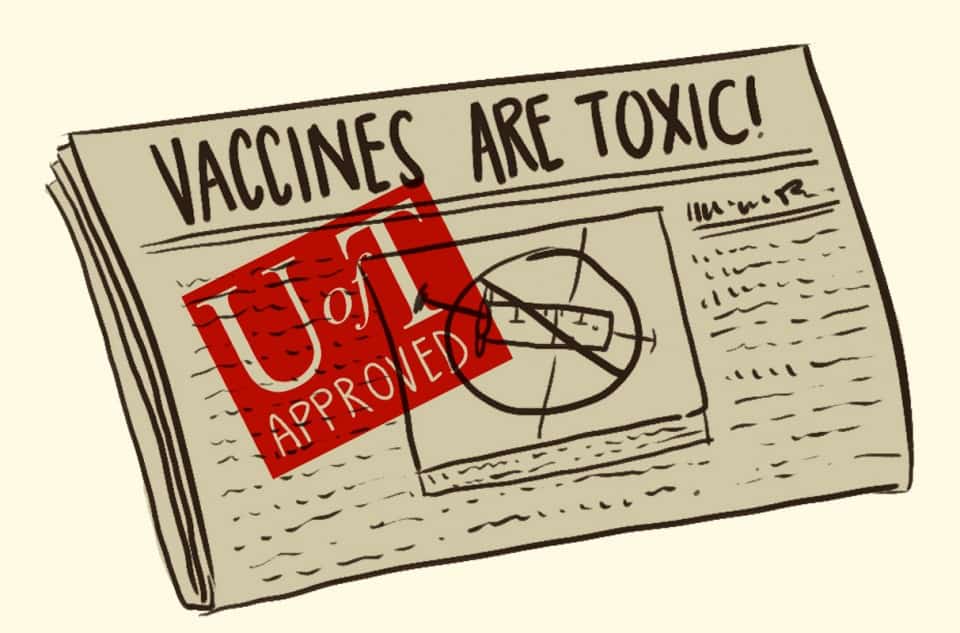The University of Toronto has been tangled in a controversy over the past few months concerning a course that allegedly includes anti-vaccination material. “Alternative Health: Practice and Theory,” taught by homeopath and wife of UTSC’s dean, Beth Landau-Halpern, went under investigation.
According to the course syllabus, there was one week dedicated to anti-vaccination material without adequate counter arguments given. Some students raised concerns that the material did not contain scientific evidence.
Dr. Vivek Goel, founding President and CEO of Public Health Ontario, and U of T’s vice-president, of research and innovation, cleared the course of being considered academically “unbalanced,” on the grounds that students have already taken courses that provide a foundation regarding the controversies surrounding vaccinations. Goel noted that no complaints were given concerning the course.
Jaime Chen* an immunology student at U of T said that, because this course was offered through the Department of Anthropology and not through the Faculty of Medicine, it does not necessarily need scientific evidence. “It could [serve] as a course to show different perspectives on vaccinations… but I don’t think it should be taught as fact,” said Chen, whose main area of concern was “claiming [that] there is a link between autism and MMR vaccination, which has already been disproven.”
Andrew Rouble, a U of T medical student, co-authored a complaint regarding the course, in which he stated that the authors of the letter felt a duty to respond to the controversy. “This course was not taught by or affiliated with the Faculty of Medicine, however as future physicians we felt a duty to respond to the issues raised by this course,” Rouble said, reading a portion of the letter. “We believe that the report neither adequately confronted the concerns of the academic community, nor accounted for the current tenor of the public conversation about vaccination. While we understand the importance of academic freedom, we must also ensure that students receive a high quality education that is reflective of expertise of a lecturer on the subject matter.”
Rouble did not think that anthropology undergraduates had an adequate foundation surrounding the controversy on vaccinations,, as Dr. Goel suggested. “We believe that the university offering a course should be responsible for determining the scientific accuracy of course content, not its students.”
For Rouble, the most troubling aspect of the controversy is that Dr. Goel cleared the course of being unbalanced. In the letter of complaint to the university students wrote: “The very notion that anti-vaccination views could be considered a part of a ‘balanced approach’ to teaching about the science of vaccines is completely false. The overwhelming scientific consensus, supported by mountains of robust evidence, concludes that vaccines are safe, effective, and save lives. Suggesting that anti-vaccine views are a part of a balanced approach to the science is to perpetuate a manufactured controversy.”
Since the controversy erupted, Beth Landau-Halpern has released only one statement on her personal website. She recounts the attacks and bullying on herself from the scientific community and writes “the assertion that science is objective and impartial is erroneous. The results of scientific studies are not watertight, and the same results can be used to prove/disprove almost anything, depending on the point of view of the investigator.”
In relation to the anti-vaccination controversy, Landau-Halpern attributes the vehement reaction in part to the reappearance of measles in the USA: “the reappearance of a disease many thought was all-but eradicated brought up all sort of deeper fears: fear and doubt about the promises of big brother institutions such as medicine and government to have all the answers.”
The university has confirmed that the course will not be offered in the 2015–2016 year.
*Name changed at source’s request


